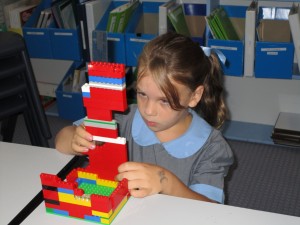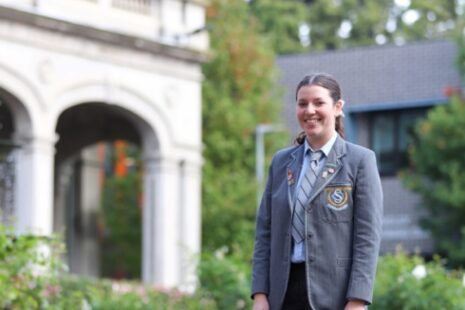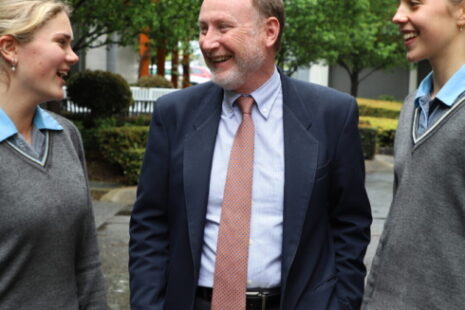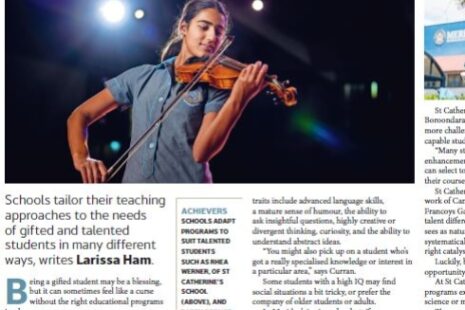Building a Foundation of Mathematical Knowledge
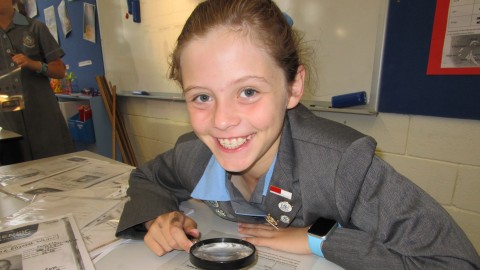
Our Mathematics program aims to develop confident and competent mathematicians who enjoy the challenge of learning more about the concepts of Mathematics and how they are used in our world.
Mathematics is one of the core subject areas within the St Catherine’s Junior School curriculum. It assumes a very important position within the education of all our students.
As educators, we realise that the provision of solid and thorough introductions to the intricacies of Mathematics creates opportunities for students to learn and understand Mathematics better and take this knowledge to higher levels as they progress through their education and beyond.
In our ongoing commitment to deliver innovative and current teachings in Mathematics, St Catherine’s undertakes regular investigations and evaluations of new resources available in the delivery of this subject area.
International studies of mathematical achievement, such as that undertaken and reported by the Programme for International Student Assessment (PISA) in 2012, that evaluated the skills and knowledge of 15 year old students, reported students from countries such as Shanghai China, Singapore, the Republic of Korea and Hong Kong China had average scores well above the OECD average of 494.
Students from Australia had an average of 504 which was above the OECD average but well below that of Shanghai China (613), Singapore (573), Republic of Korea (554) and Hong Kong China (561).[1]
The question we, as educators, must ask is ‘how do these countries teach Mathematics so effectively?’
In the top performing nations pedagogical approaches and practices that are common throughout a program are very important as are the expectation of outcomes. As part of our research into improving our delivery of Mathematics in the Junior School we evaluated programs based on the teaching methods utilised in a collection of the high achieving countries, particularly Singapore, the Republic of Korea and Hong Kong.
Following this evaluation PR1ME Mathematics was introduced as our core Mathematics text in the Junior School.
PR1ME Mathematics is based on a concrete-pictorial-abstract approach that works towards a development of metacognition and mathematical thinking, mastery of skills and an approach where problem solving is central.
The benefits of this program throughout the Junior School include the sequential establishment of concepts through comprehensive and well tested teaching methods, the use of a common language and the building block approach allowing students to construct their knowledge and understanding of Mathematics through a consistent School based program.
Areas of the Australian and Victorian curriculums that are not detailed in PR1ME Mathematics are still taught at each class level which results in a School wide program that is comprehensive, rigorous and engaging.
When first introduced in 2015 there was a period of adjustment as the students and staff became more familiar with using the five phase modelling process where students were able to discuss problems, manipulate materials, experiment and verify and present findings and reflect on the processes they had used. PR1ME Mathematics is a very challenging program, however after an initial establishment period, our students’ understanding of concepts and abilities to solve problems has shown consistent improvement.
To further develop our students’ use of problem solving skills there is also the opportunity to participate in Mathematics groups, before and during School, such as STEM in the Morning and the Years 5 and 6 problem solving groups.
St Catherine’s also offers activities extending students’ mathematical knowledge and in some cases, competing against students from across the country and the world through events such as the Mathematics Olympiads, Australian Mathematics Challenge and ICAS in the upper Junior School.
Our Mathematics program aims to develop confident and competent mathematicians who enjoy the challenge of learning more about the concepts of Mathematics and how they are used in our world.


